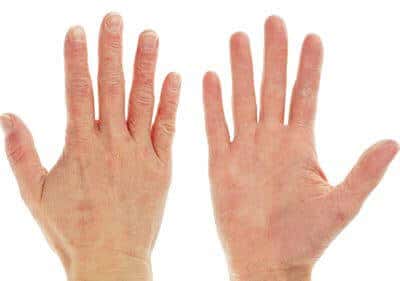
Atopic dermatitis is an overreaction of the immune system that results in itchy eczema. People who are prone to hay fever or asthma are also more susceptible to this condition that produces red bumps on the skin, significant itching and thickened, scaly skin where the problem has been most serious. Allergies to food or other substances may play a role. Are there any simple remedies that can help?
Listerine to Soothe Itchy Eczema:
Q. I know from personal experience how annoying eczema can be. My hands and face get red, itchy spots. To control it, I put amber Listerine on a cotton ball and dab it on the area with the eczema several times a day. It is not a cure, but it does control the itching.
Why Does Listerine Ease Itchy Eczema?
A. Doctors do not know exactly what causes eczema (atopic dermatitis). They suggest, however, that scratching can set up a vicious cycle of itch-scratch-itch more. There is growing suspicion that disruption of the microbial ecology of the skin could play an important role in the development of itchy eczema (British Journal of Dermatology, Nov. 2017).
Listerine contains several essential oils that have both antibacterial and antifungal activity, including thymol, menthol, eucalyptol and methyl salicylate. Perhaps this combination of ingredients helps to re-establish a more comfortable and diverse range of bacteria on the skin. That might possibly explain your success with this unorthodox use of mouthwash. We haven’t found any studies of Listerine to treat atopic dermatitis, however.
Other Botanical Approaches to Eczema:
Listerine is not the only common remedy that can help calm the redness and itching. Some readers are enthusiastic about Noxzema, which has some of the same ingredients as Listerine. Researchers have found that Mahonia (Oregon grape holly), Hypericum (St. John’s wort) and Glycyrrhiza (licorice) can be helpful against itchy eczema when applied topically (Reuter et al, American Journal of Clinical Dermatology, Aug. 2010).

